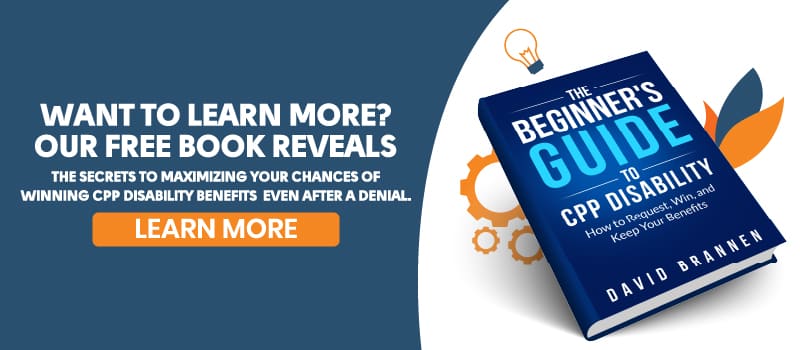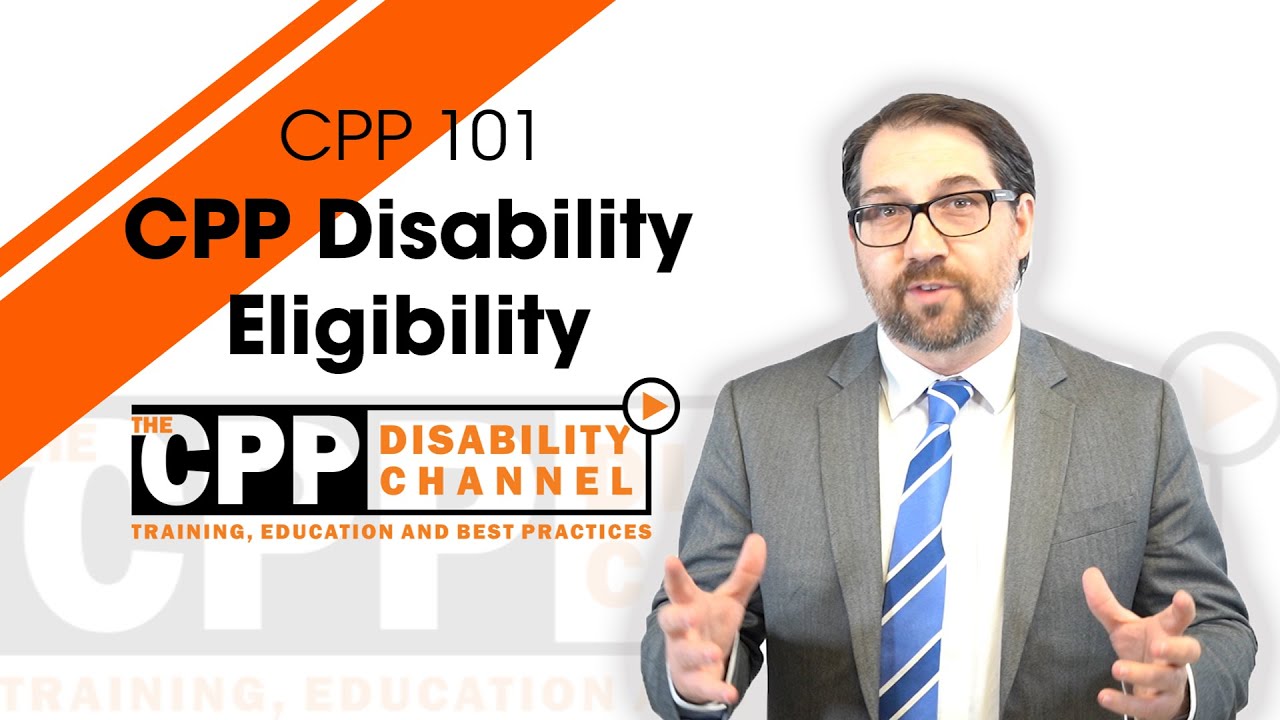Has your insurance company sent you an Irrevocable Consent to Deduct and Pay an Insurer form?
Are you wondering what it is, what it means, or if you should sign it? In this article, we explain the Irrevocable Consent to Deduct and Pay an Insurer form so you can decide if it makes sense for you to sign it.
This article is part of our Ultimate Guide to long-term disability in Canada.
What Is the Irrevocable Consent to Deduct and Pay an Insurer Form?
The Irrevocable Consent to Deduct and Pay an Insurer form is an authorization form available from Service Canada. Its purpose is to allow communications and direct payment of money from the CPP disability administration to an insurance company on behalf of a person receiving CPP disability benefits.
What does it mean that it’s “irrevocable?”
Irrevocable means that once you sign the form to consent to the payment, you can’t later withdraw your consent. Irrevocable consents are very harsh; normally, you can give and revoke consent whenever you wish.
Why is it irrevocable?
To put it simply, this form benefits the insurance companies and the CPP administration. If consent is irrevocable it’s easier for Service Canada to administer, and it makes it more likely that insurers will get paid. There is no benefit to you in making the consent irrevocable.
If it were not “irrevocable,” many people would want to revoke the consent.
A common scenario is when the insurer wrongfully terminates your LTD payments after you have signed the Irrevocable Consent to Deduct and Pay an Insurer form: You are no longer getting LTD payments. When your CPP gets approved, the lump sum will be paid over to the insurer, even though they are wrongfully denying your LTD payments.
You can probably appreciate why you would want to revoke the consent in that situation.
Why Is the Insurer Giving It To You?
The insurer wants you to sign the Irrevocable Consent to Deduct and Pay an Insurer form because it makes it easier — and more likely — for them to get paid any money you owe them once you get approved for CPP disability benefits.
Almost all long-term disability insurance policies and plans have clauses allowing them to offset a person’s disability payment by income or money from other sources. Essentially, the insurance company wants to pay you as little as possible out of their pocket, and any income you receive is their justification for doing so. CPP disability payments are a common income source that insurance companies are able to offset from their payment to you.
Those who are approved for CPP disability benefits will receive two things:
First, they get approved for monthly payments from the month of approval forward. You will receive either a cheque or direct deposit from the CPP administration for your monthly benefit payment.
However, you also receive a retroactive payment for past CPP disability benefits owed. This comes as a lump sum, one-time payment. This payment can represent past monthly payments going back a year or more.
For example:
Let’s assume your LTD payment is $1500 per month, and your CPP disability benefits are $900 per month.
You will receive $900 every month from CPP disability. But the LTD payment from your insurer goes down to $600 per month. This is because the insurer is able to offset their payment by the CPP payment, saving themselves $900.
Your total monthly payment stays the same; it just comes from two sources.
CPP administration will outline the months and years that the retroactive payment covers. The insurer will look at this period to determine if it made its $1500 payment to you during those months. For any months they make a payment, they will seek a refund since the CPP retroactive payment includes that time.
So, if you received LTD payments in all of the months covered by the CPP retroactive payment, you would owe the entire payment to the insurer.
In some cases, the person receives the CPP disability lump sum payment and spends some or all of it before paying back what is owed to the insurance company. The insurance company then has to deal with collections. This can include garnishing part of the LTD payment, sending the debt to collections, or bringing a lawsuit against them.
In recent years, insurers have become much more aggressive with getting people to sign the Irrevocable Consent to Deduct and Pay an Insurer form. I expect this is a management decision to improve their collection rates for these debts arising from the lump sum payments of CPP disability.
Do You Have To Sign the Form?
No, you don’t have to sign it — no matter what the insurance company is telling you.
However, there are some implications if you don’t.
What Happens If You Refuse to Sign It?
If you refuse to sign the Irrevocable Consent to Deduct and Pay an Insurer form, your insurance may simply estimate and deduct the amount of your CPP disability payment — even if you aren’t yet approved for CPP disability or receiving a payment! By doing this, the insurance company is achieving the same ends in avoiding a situation where they can’t collect back any “overpayment” that would result from your CPP disability approval.
Based on our example above, if the insurance company estimates your CPP payment will be $900 per month, they will start reducing your LTD payment from $1500 to $600 per month. They can do this even though you are not getting the $900 from CPP disability.
People often ask if this is legal — and if it is, how is it legal?
This practice is only legal if it is allowed under the insurance policy or plan in question. Most modern group insurance policies do authorize the insurer to estimate and deduct CPP disability benefits at their own discretion.
It used to be uncommon for insurance companies to do the estimate and deduct, but now it is very common. Again, I believe this is part of a push by insurers to increase their collection rates on debts owed from CPP disability approvals.
What Are the Benefits of Signing It?
There are two benefits to signing the Irrevocable Consent to Deduct and Pay an Insurer form.
First, you ensure that your LTD payments will not be reduced while your CPP disability claim is pending. You will continue to get the full LTD payment.
The second benefit is that you avoid the hassle of having to arrange payment to the insurance company after your CPP benefits are approved. The insurance company will advise the CPP administration of the amount owed. And then, the CPP administration will make the direct payment to them. Any leftover balance is sent to you.
Most importantly, you get peace of mind that you won’t owe anything to the insurer.
Next Step – Get Your Free Book
Start making better decisions today. Click on the image below to request an instant download of our free Book.



